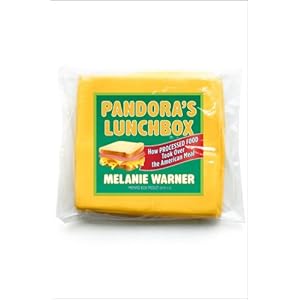The unfolding drama around Europe’s horsemeat scandal is a case study in food politics and the politics of cultural identity.
Cultural identity? They (other people) eat horsemeat. We don’t.
Most Americans say they won’t eat horsemeat, are appalled by the very idea, and oppose raising horses for food, selling their meat, and slaughtering horses for any reason.
These attitudes have created dilemmas. Since Congress effectively banned horse slaughter in 2006, roughly 140,000 horses a year have been transported to Canada and Mexico to be killed. Whether this is better or worse for the horses is arguable. Some—perhaps most—of that meat will be exported as food.
As Mal Nesheim and I wrote in our book about the pet food industry, Feed Your Pet Right, most—more than 90%—of domestic horsemeat ended up in pet food (the rest was eaten or shipped to Europe). In the 1920s, horse slaughterhouses started pet food companies as a means to dispose of the meat. Horsemeat remained a major ingredient of dog foods throughout the 1940s.
Since then, pet food companies replaced horsemeat with meats from other animals. Although it continues to be permitted in pet food, I’m not aware of any company that would dare use it. It would have to be disclosed on package labels.
That brings me to the European horsemeat crisis, one brought about by advances in DNA technology that allow officials to test for species in foods.
I’m indebted to Joe O’Toole, president of Lucullus, a French specialty food company, for keeping me up to date on the unfolding saga of how horsemeat got into European hamburger and so many other foods. He sent me links to early stories:
The problem first emerged earlier in January when the Food Safety Authority of Ireland handed over results of DNA tests it had carried out on burgers produced in Ireland for sale in the UK. Samples from 10 of 27 products sourced from three processing plants had tested positive for horse DNA. One sample is said to have contained 29 percent horse.
As the article explained, the immediate response was “a relatively faultless exercise in damage control.” Food processors immediately recalled their products and Tesco, Britain’s largest supermarket chain, placed an ad and followed it up with a video apology. This is viewed as excellent damage control. Although Tesco shares dropped by 1 percent for a loss of $475 million, it could have been worse.
Leaving aside the cultural prohibitions against eating horsemeat, here’s what I find fascinating:
- DNA technology made this possible.
- The supply chain is so complicated and involves so many countries—Romania, Ireland, Netherlands, Spain, Poland, France, and, no doubt, others—that where the meat comes from is impossible to trace.
- The finger pointing over who is to blame.
- The enormous number of companies involved.
- The idea that this is a drug issue (horses are treated with drugs).
- The idea that horse transport is used as a cover for smuggling (drugs and people).
- The involvement of organized crime (if selling horsemeat is illegal…).
By far the best place to start on this story is Felicity Lawrence’s Horsemeat Scandal: The Essential Guide, in The Guardian. She did this as a Q and A:
1. Where did the horsemeat scandal begin?
2. Where did the horse and pig found by the Irish in beef products come from?
3. Why did some products contain so much more horse than others?
4. How did the rest of Europe get involved?
5. Is the source of the Irish horsemeat the same as the French one?
6. Why are the supply chains so complex?
7. Why has it happened?
8. How is the meat industry regulated?
9. What about industry claims that it has full traceability?
10. What happened to government control of food safety and standards?
11. Where do the horses come from?
12. What part do UK horse abattoirs play?
13. Why are governments talking about organised crime?
14. Is it a health problem?
I will have more to say about this later, as more details emerge. Stay tuned!
Addition, February 27: Australia Food Safety News offers this terrific infographic on the scandal.







